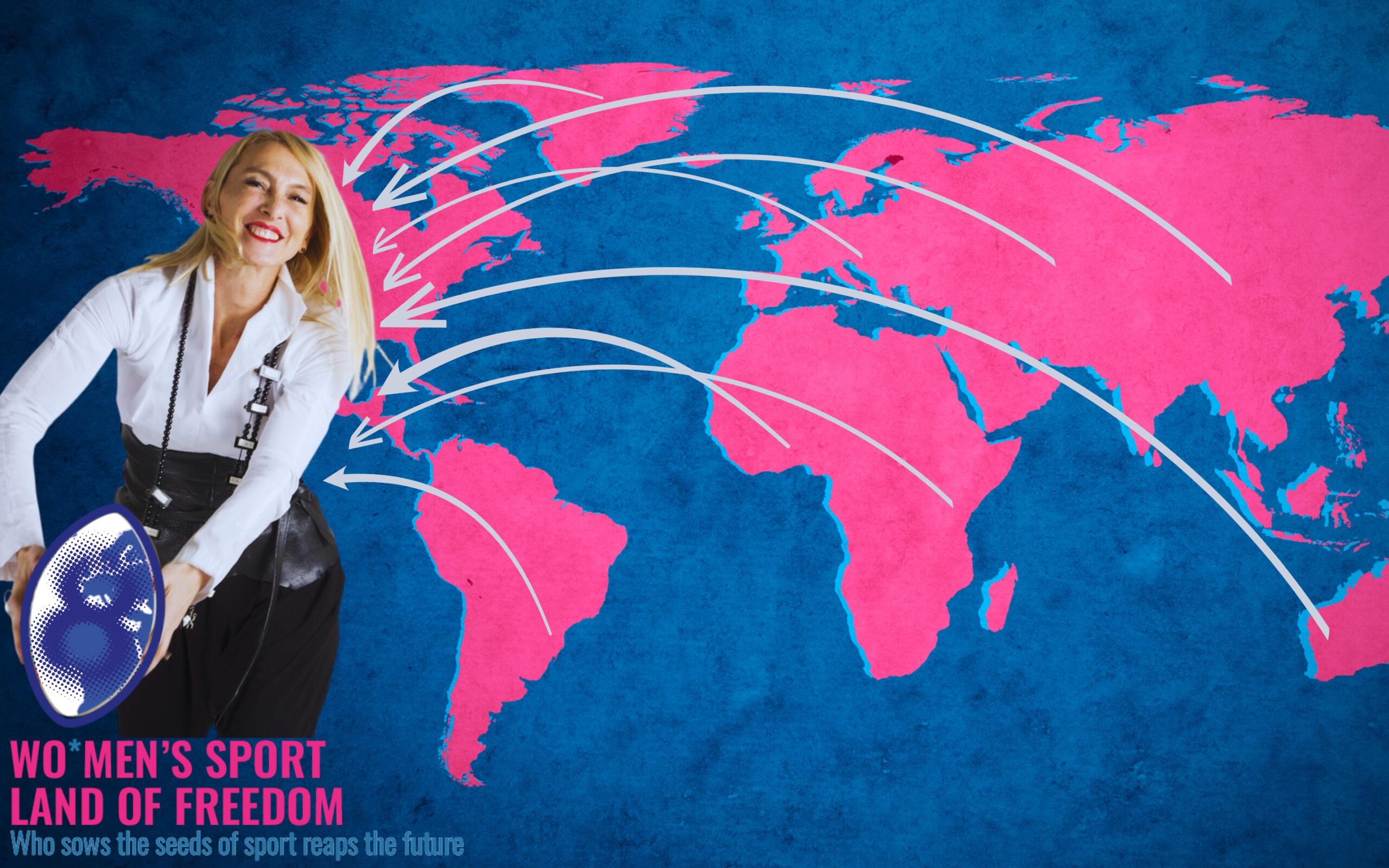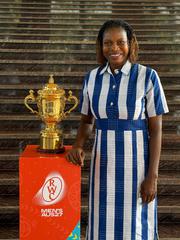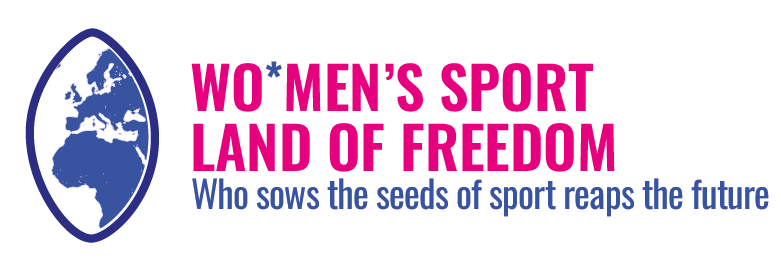
BURKINA FASO: RUGBY HAS TAUGHT ME THE IMPORTANCE OF RESILIENCE, TEAMWORK, AND THE ABILITY TO GET BACK UP AFTER EVERY CHALLENGE.
“Rugby has taught me the importance of resilience, teamwork, and the ability to get back up after every challenge.”

Thanks to:
Rolande Boro
Botswana Rugby Union-Training & Education-Coach Educator
- The history of the women’s movement in Bulgary
- Testimonials
- Reading time: 7 minutes
BURKINA FASO - Find out more
Burkina Faso is a republic in West Africa with about 23 million inhabitants (2023), just over 50% of whom are women. The demographic structure is very young: over 40% of the population is under 15, and the median age is below 17. Women participate in the labor force less than men (about 41% compared to 53.5%). The country has a high adolescent birth rate, with over 90 births per 1,000 girls aged 15–19. Significant challenges remain in terms of gender-based violence, women’s education, and adequate data collection.
(Source: Wikipedia – Demographics of Burkina Faso; CEIC/World Bank; World Bank Gender Data Portal; UN Women Data; UNFPA data; AP News)
HISTORY OF THE COUNTRY
1. When did the women’s rugby movement start in your country and what is its history? How is rugby structured in your country?
The women’s rugby movement in Burkina Faso really began in early 2009, although it was initially very informal. At that time, women who played rugby faced strong social resistance, and the sport was largely male-dominated. Thanks to the determination of a few pioneers, myself included, the first women’s teams began to emerge, mainly in universities. The history of women’s rugby in Burkina Faso is one of resilience and courage. When I started playing at the University of Ouagadougou, rugby was completely unknown to women. Gradually, thanks to the efforts of passionate players and supportive leaders, we created opportunities for women to play, organize matches, and even represent the country. My first national team call-up was in 2009 for a tournament in Ghana. As President of the Burkina Faso Rugby Federation from 2016 to 2024, I made the promotion of women’s rugby my personal mission. We introduced training programs for female coaches and referees, organized dedicated tournaments, and worked with institutions such as Rugby Africa and the National Olympic Committee. In 2024, we joined World Rugby’s Rugby Rising Play program for teenage girls, marking a new chapter for women’s rugby in the country. Today there are about 6 active clubs with women’s teams, and participation continues to grow. Women’s rugby in Burkina Faso is structured through regional championships and national tournaments, with strong support from the National Olympic Committee and Rugby Africa. Players also benefit from opportunities to earn coaching and refereeing certifications, and many former players now work as coaches and referees at the national level.
2. Do you think playing rugby has a social impact for a woman in your country?
Absolutely. In Burkina Faso, where women’s roles have traditionally been confined to family responsibilities, rugby has become a powerful tool for social change. It challenges gender stereotypes and shows that women can be both strong and feminine, both leaders and mothers. I have seen young women gain confidence, earn respect in their communities, and inspire others simply by stepping onto the field. It is a movement of empowerment.
3. In your opinion, what can rugby give to women in your country?
In my view, rugby offers Burkinabé women three essential things:
Courage – the ability to face adversity and get back up after every setback. / Solidarity – the experience of being part of a collective, supportive community. / Freedom – the right to define one’s identity beyond society’s expectations.
Through rugby, women can learn leadership, resilience, and the importance of teamwork—qualities that will help them both on and off the field, shaping future generations of strong and independent African women.
JOURNEYS THROUGH RUGBY
1. When did you start playing rugby and how you discover it?
I started playing rugby as a student at the University of Ouagadougou, after graduating from high school. At that time, like many young women, I was pushing against restrictive social norms and looking for a sport that embodied both resilience and collective spirit. I discovered rugby thanks to my first coach, Yacouba Sanou, who is now a sports doctor. He introduced me to the game, and together we founded the Association Sportive des Étudiants Rugbymen (ASER). I immediately fell in love with the values of solidarity and courage that rugby demands.
2 What has rugby taught you that has impacted your daily life? Can you give me an example of when a rugby mindset was useful?
Rugby has taught me the importance of resilience, teamwork, and the ability to get back up after every challenge. In both life and rugby, every tackle is a lesson: it teaches you to get back up, adapt, and move forward stronger and wiser. In 2016, when I decided to run for President of the Burkina Faso Rugby Federation, I faced enormous opposition and social pressure. I drew strength from the rugby mindset: embrace the challenge, stay on your feet, and keep advancing no matter how tough the contact. That determination led me to become the first woman to lead a sports federation in my country.
3. Can you give me 3 words that connect rugby to freedom?
Power – Resilience – Brotherhood. Through rugby, I found a space to express my identity, challenge limitations, and build bonds that go beyond social expectations.
4. What does live in a land of freedom mean to you?
For me, living in a land of freedom means being able to be my true self, without compromising my passions, dreams, or ambitions. It’s about daring to wear rugby boots with high heels, motherhood with leadership, and paving the way for those who will follow.
5. What object represents you and why? What is an aphorism that guides your life?
A box full of rugby boots and high heels. It perfectly symbolizes my identity: a leader, a mother, an athlete, and a woman of action. This object tells my story: my refusal to choose between femininity, passion, and leadership.
“Alone, we go fast. Together, we go far.” Every chapter of my journey—from my childhood neighborhood to rugby’s international boards—has been built through teamwork, solidarity, and the power of collective effort.
